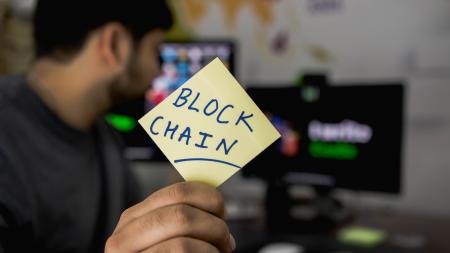In the world of IT, where virtual currency in the form of Bitcoin is invested and managed, a number of start-ups have begun to face obstacles. One such prominent issue is a lack of blockchain developers compared to say Java or others.
Blockchain is growing at such a pace that developers are having a hard time catching up. Below is a comparison of what blockchain and crowdsourcing are and what they have in common. Their similarity mostly lies in how their collaboration makes business management and digital transfer result in an even progressive outcome.
Blockchain
Blockchain had been initially created to support, power and manage Bitcoin, and is now used as a copyright protection mechanism as well as for outsourcing. The surge of bitcoin use led to the blockchain advent through which this particular virtual currency is transferred and bought. These transactions are carried out in the open i.e. anyone sees the amount of virtual currency being sent or bought but the identity of the parties between which the transfer takes place are kept private.
Crowdsourcing
An example of crowdsourcing is when a group of people with the same goal work together to innovatively and efficiently get results and problem-solve. Since crowdsourcing is characterised by a social business-based interaction, it can be applied to almost any field of economics, government policies, and private businesses too. Crowdsourcing is applicable not only in non-virtual instances but also in major areas of information and technology such as blockchain.
Blockchain and Crowdsourcing Complement each other
The technology remains to be growing and new concepts soon take a lead in the swiftly progressing Information technology world. The developers, because of continuously changing dynamics, use crowdsourcing as the technique to make the best of the current hits in the field.
Crowdsourcing allows newer talent to get the gist of the technology world and the buyers that are hiring candidates for developing better user interfaces, smart code contracts and tuning existing codes as per requirement, both find what they’re looking for. Although this type of hiring is risky in the sense of credibility of the digital information. Blockchain provides the security that developers need when they exchange information because it works by decentralising the information. So, developers and those requiring developers come together on a platform or marketplace built on blockchain for monitored exchanging and selling of digital information or currency.
In this way, blockchain serves as a priest watching and monitoring the union of the developers and buyers.
To sum it up, the use of blockchain combined with crowdsourcing on a vast spectrum has made businesses and transfers much easier with the removal of most risk factors except for hacking and human error.









Comments (0)